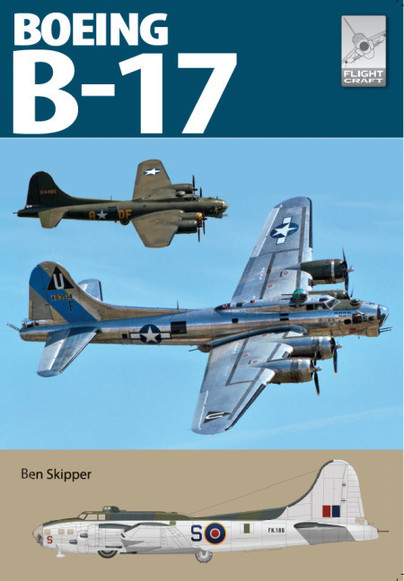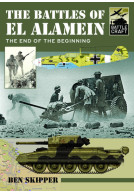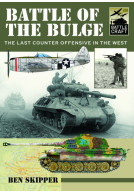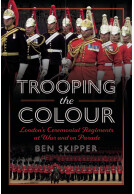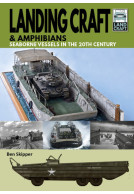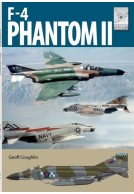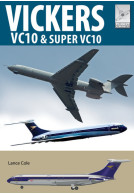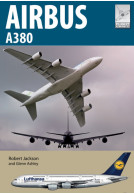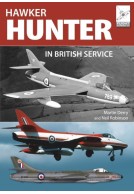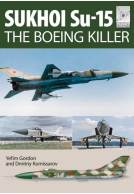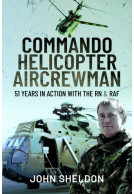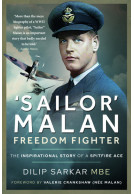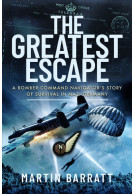Flight Craft 27: The Boeing B-17 (Paperback)
Imprint: Air World
Series: Flight Craft
Pages: 96
ISBN: 9781399086462
Published: 16th February 2023
(click here for international delivery rates)
Need a currency converter? Check XE.com for live rates
| Other formats available | Price |
|---|---|
| Flight Craft 27: The Boeing B-17 eBook (92.0 MB) Add to Basket | £6.99 |
The B-17 Flying Fortress, a term coined by a Seattle Daily Times report in 1935, was a quantum leap in offensive air power. Designed for a nation whose foreign policy was still deeply isolationist, and an Air Corps whose in-service bomber fleet was dominated by bi-planes, the B-17, with its four engines, huge wingspan, enviable payload – almost double that of contemporary bombers – and all metal construction, ushered in a new age.
For an aircraft of its size and relative complexity the B-17’s design and development was heralded by a host of key innovations with the unveiling of the XB-15 (Boeing 294), including engine access crawl ways, enhanced endurance and massive load capacity. Within a year the Y1B-17 or Model 299 had refined ideas from the XB-15 and produced a sleek, attractive-looking aircraft. By 1937 all testing had been completed and the first 12 aircraft were delivered to 2nd Bombardment Group for assessment.
At the start of the Second World War the still-new B-17 was just beginning to fill the ranks of US bomber squadron’s and by early 1941 the B-17C, arguably the fastest B-17 built, was flying in RAF Service. The B-17 was soon flying over Europe with the newly-created United States Army Air Forces, as well as taking the fight to the Japanese in the Pacific and to the Axis in the Mediterranean.
When production of the B-17 was halted in April 1945, at which point the B-17 had been supplanted by the B-24 in the Pacific, over 12,700 B-17s had been built. The type would bow out as a bomber not long after the war’s end, though a few would soldier on as SB-17 air-sea rescue aircraft. Ultimately the B-17 would fly with 26 countries.
This Flight Craft title offers the modeller an exciting selection of photographs, illustrations and showcase examples to help build their own version of this icon of the skies.
“Very highly recommended.”
AMPS Indianapolis
Read the full review here
"...it’s a great starting point for a modeller seeking guidance, as it balances detail with brevity, contains a large amount of imagery and covers the hobby element effectively."
Airfix Model World - June 2023 Issue
“On a scale of 1 to 10, I’d rate this book as a solid 10, no question about it. Topping out at a nice 96 pages of B-17 coolness, it's a very nice overall look at a very well known aircraft, and is therefore highly recommended.”
Large Scale Planes
Read the full review here.
Featured in
Panorama Difesa - June 2023
As featured on Scale Modelling Now
Scale Modelling Now
As an aircraft enthusiast and a modeller, this gives an ideal mix of history with modelling references and inspiration.
Military Model Scene
Read the Full Review Here
About Ben Skipper
BEN SKIPPER AMRAeS is a freelance feature writer with over 100 articles published on art, military and field sports subjects. He is an Associate Member of Royal Aeronautical Society and the Pen and Sword Club (military journalists and writers), a Freeman of the City of London and the Company of Communicators, a full member of the British Guild of Agricultural Journalists, the NUJ and the Society of Authors. Ben is an avid modeller and writer of twentieth-century military subjects. His interest in British armour was cemented by a visit to the King’s Royal Hussars in the early 1990s as an undergraduate in the Territorial Army. He then joined the RAF, clocking up air miles in a range of RAF transport aircraft including the VC10 and C-17.
Flight Craft 29: Boeing B-29 Superfortress (Paperback)
The B-29 Superfortress was the definitive expression in piston-powered offensive air power. It was designed for an air force that was slowly realising it needed larger and heavy aircraft to support its operations, especially in the Pacific. Riding on the waves made by the equally ground breaking B-17, the B-29 was a bigger, more capable and more complex platform which incorporated myriad lessons learned from the European air war. It was soon decided to utilize the B-29’s exceptional range of 3,250 miles in the Pacific Theatre, where its payload would go on to wreak havoc among the forces of…
By Ben SkipperClick here to buy both titles for £33.98







